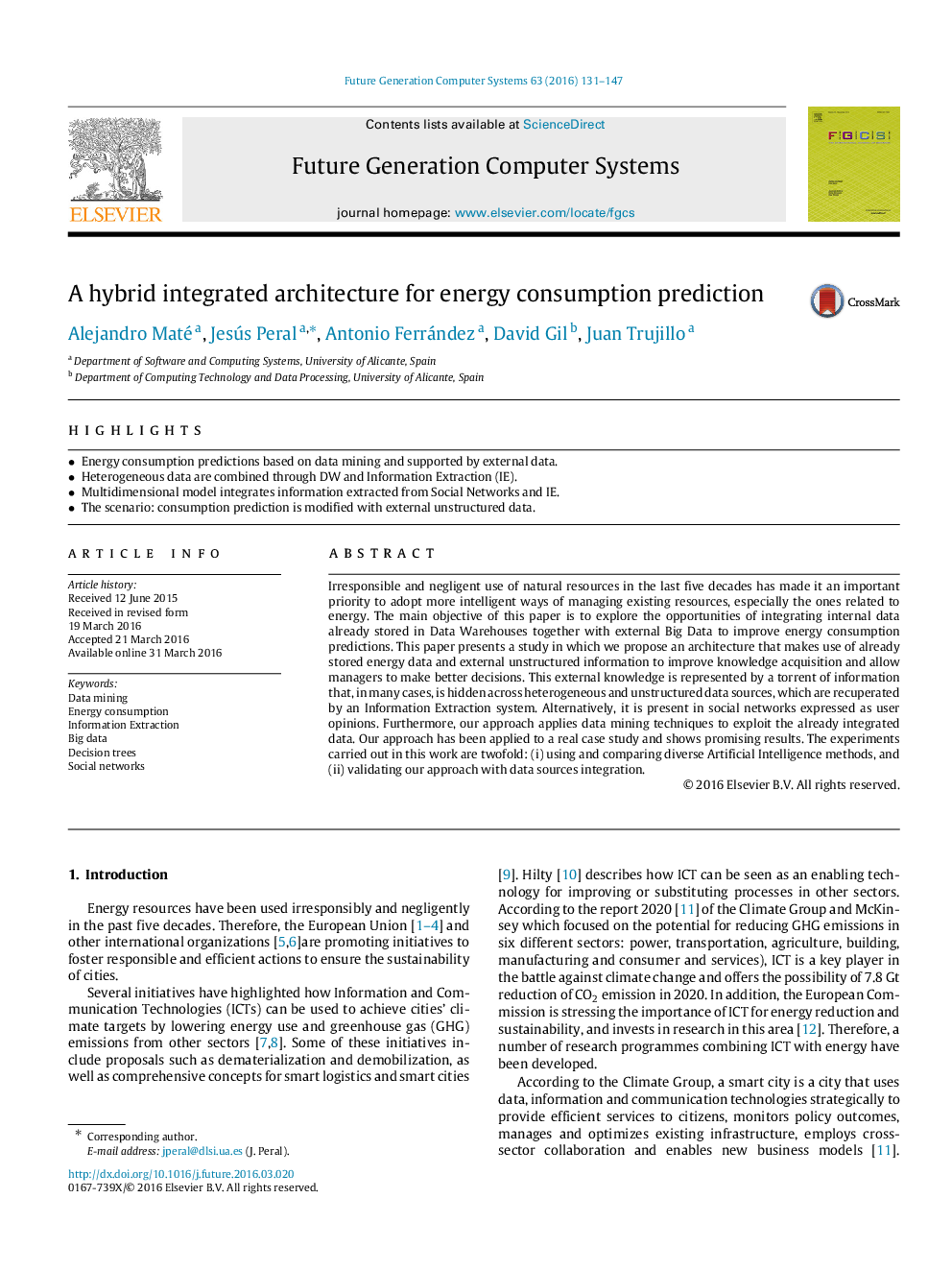| کد مقاله | کد نشریه | سال انتشار | مقاله انگلیسی | نسخه تمام متن |
|---|---|---|---|---|
| 424514 | 685582 | 2016 | 17 صفحه PDF | دانلود رایگان |
• Energy consumption predictions based on data mining and supported by external data.
• Heterogeneous data are combined through DW and Information Extraction (IE).
• Multidimensional model integrates information extracted from Social Networks and IE.
• The scenario: consumption prediction is modified with external unstructured data.
Irresponsible and negligent use of natural resources in the last five decades has made it an important priority to adopt more intelligent ways of managing existing resources, especially the ones related to energy. The main objective of this paper is to explore the opportunities of integrating internal data already stored in Data Warehouses together with external Big Data to improve energy consumption predictions. This paper presents a study in which we propose an architecture that makes use of already stored energy data and external unstructured information to improve knowledge acquisition and allow managers to make better decisions. This external knowledge is represented by a torrent of information that, in many cases, is hidden across heterogeneous and unstructured data sources, which are recuperated by an Information Extraction system. Alternatively, it is present in social networks expressed as user opinions. Furthermore, our approach applies data mining techniques to exploit the already integrated data. Our approach has been applied to a real case study and shows promising results. The experiments carried out in this work are twofold: (i) using and comparing diverse Artificial Intelligence methods, and (ii) validating our approach with data sources integration.
Journal: Future Generation Computer Systems - Volume 63, October 2016, Pages 131–147
